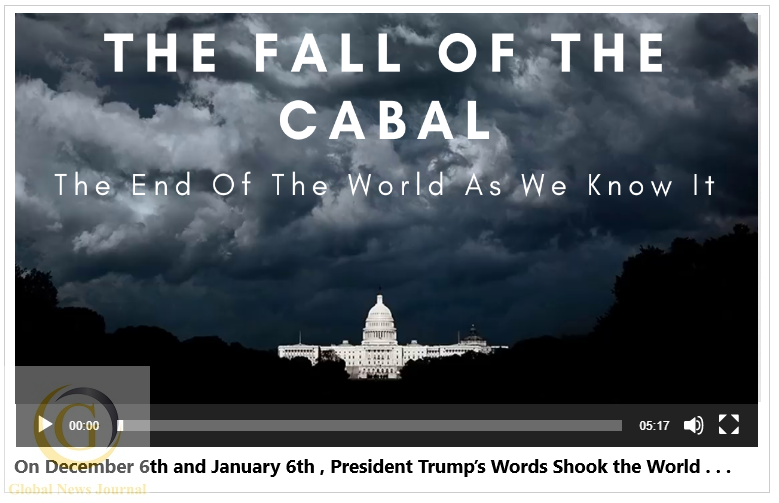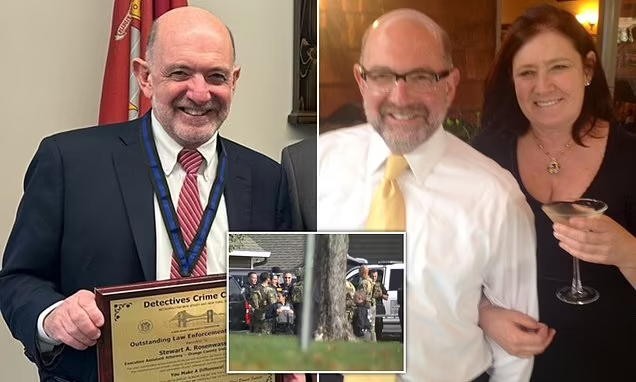Migrants Flood NYC as Trump’s Victory Sparks Deportation Fears VIDEO
Ready to uncover the truth? Sick of the lies? Join our Telegram Channel now. It’s time for the real story! My gratitude to all my readers!
Trump’s 2024 victory shakes New York City to its core, intensifying conflicts over sanctuary policies and the asylum crisis, as local leaders brace for battles over immigration and public safety.
Trump’s 2024 Victory: A Political Earthquake and Its Explosive Impact on New York City
In a dramatic twist that will be remembered as one of the most seismic political events in modern history, Donald Trump has clinched the 2024 presidential election, defying odds and expectations to reclaim the White House. His victory, confirmed with 277 Electoral College votes, not only upends the national political landscape but sends profound shockwaves through New York City—a city that remains a bastion of progressive values and voted overwhelmingly for Vice President Kamala Harris. The implications are vast, spanning from policy changes to social tensions, as the city braces for what many are calling an impending clash of ideologies.
The Surprising Triumph: Trump’s Unprecedented Comeback
Donald Trump’s return to power is nothing short of a political renaissance. The former president, who lost in 2020 to President Joe Biden, orchestrated one of the greatest comebacks in the annals of U.S. politics. New York City, a city that firmly rejected Trump by voting 55% for Harris, now faces a reality it sought to avoid. New Jersey, once solidly Democratic, saw Trump narrow his 2020 loss from a 16-point margin to just five points in 2024. This significant swing highlights a deeper shift in American political attitudes, suggesting that dissatisfaction with current leadership ran deeper than anticipated.
A Shift in Political Dynamics: The Center Strikes Back
The election results are a wake-up call for Democratic politicians who may find themselves reassessing their strategies. Trump’s victory signals an undeniable shift in the electorate, challenging the Democratic stronghold to reconsider its priorities. The traditional Democratic base, concentrated in metropolitan areas like New York City, must grapple with the reality that its influence, though strong, is no longer unchallenged. A push towards moderate stances may emerge as politicians aim to regain the support of an electorate that feels alienated by partisan extremes.
Impact on Immigration and the Asylum Crisis: New York’s Burden
Amid the political shock, the most immediate and daunting challenge for New York City is the asylum crisis. The city has welcomed over 200,000 migrants, straining its already overburdened infrastructure. The cost of supporting these new arrivals has ballooned past $5 billion, straining municipal resources and leading to growing public frustration. The right-to-shelter policies, once a source of pride, now face intense scrutiny as thousands of migrant families find themselves displaced and living in increasingly dire conditions. Trump’s victory throws this issue into sharper relief, with expectations of a harsher federal stance on immigration under his renewed leadership.
The Challenge Ahead: Sanctuary City Status Under Siege
New York City’s sanctuary status, which offers protections to undocumented immigrants from federal enforcement, is set to be tested like never before. Trump’s previous administration targeted sanctuary cities through funding threats and legal battles, and there is every reason to believe that his 2024 agenda will include similar tactics. The city’s commitment to providing refuge is both its strength and Achilles’ heel. With Trump’s resurgence, New York could become a focal point of federal pressure, risking both political and financial repercussions.
The Double-Edged Sword of Sanctuary Policies
Sanctuary city policies are a testament to New York’s dedication to humanitarian ideals, but they also come with challenges. These policies are designed to protect immigrants from deportation, fostering an environment of trust between communities and law enforcement. However, they can also limit police effectiveness when it comes to monitoring criminal activities that exploit these protections. Reports of the Venezuelan gang, Trendde Aragua, infiltrating shelter systems reveal how these policies can become a double-edged sword, protecting vulnerable populations while unintentionally sheltering illicit activity.
The Complexity of New York’s Asylum System
At the heart of the city’s immigration dilemma is the shelter system, originally intended as a short-term safety net. This system has now become a long-term solution for thousands who are stuck in a bureaucratic quagmire. Without clear pathways to legal employment, many asylum seekers are forced to remain dependent on public resources. This cycle creates an unsustainable burden, exacerbating social and economic strains. The Trump administration’s expected policies could magnify these challenges by tightening federal oversight and limiting state autonomy in managing asylum procedures.
Federal vs. Local: The Coming Showdown
Trump’s return to the Oval Office sets the stage for a dramatic escalation in the already tense relationship between federal and local governments. New York City’s leadership, including Mayor Eric Adams, initially embraced its role as a sanctuary city, welcoming asylum seekers with open arms. But the sheer volume has proven to be overwhelming, leading to a pivot towards stricter management. Under Trump’s presidency, this balancing act will become even more precarious. The collision between Trump’s federal mandates and New York’s local policies could spark significant legal battles and public protests.
Asylum Seekers vs. Criminal Elements: A Critical Distinction
While most migrants arriving in New York City are seeking safety and the promise of a better life, the influx also includes elements that exploit the system. Differentiating between genuine asylum seekers and those with nefarious intent is crucial. The presence of organized crime within shelters not only undermines the security of these facilities but also places the city’s residents at risk. Law enforcement faces the dual challenge of protecting vulnerable populations while ensuring public safety—a task made more daunting under policies that may limit cooperation with federal authorities.
The Role of Local Leaders: Progressive Defiance and Future Plans
Prominent leaders like Alexandria Ocasio-Cortez, who secured her seat with a wide margin, are expected to take center stage in opposing Trump’s policies. Her voice, alongside those of other progressive representatives, could galvanize support for more robust sanctuary policies and deepen the divide between federal and local governance. These leaders see their advocacy as not only a political statement but a moral imperative, fighting to protect those whom they believe would be most at risk under Trump’s immigration policies.
The Humanitarian Urgency: Beyond Politics
Amid the political clamor, the humanitarian aspect of the asylum crisis stands as a stark reminder of what is at stake. Over 65,000 individuals remain within the city’s shelter system, enduring uncertain futures. Without clear legal status or employment opportunities, many asylum seekers are trapped in a state of dependency, unable to integrate into society. Trump’s anticipated crackdown on immigration could exacerbate this already fragile situation, increasing the urgency for both immediate relief and long-term solutions that are both compassionate and practical.
Economic Integration: A Path to Stability
One potential pathway for easing the crisis is through enhanced economic integration. Programs that offer vocational training and connect asylum seekers with job opportunities could transform them from dependents to contributors, alleviating pressure on public resources. Legal pathways to employment are crucial not only for the dignity of the individuals involved but for the economic health of the city as a whole. However, such measures require coordination between local, state, and federal authorities—a coordination that may prove difficult under Trump’s administration.
Navigating Divided Policy Objectives
The division between national and local objectives is likely to grow. Trump’s federal stance on stricter immigration policies may prompt New York City to reinforce its sanctuary measures, possibly creating a standoff that will resonate across the nation. As local officials double down on policies they see as essential to human rights, the clash between federal power and city governance will be a defining feature of Trump’s term. This division could result in both legislative gridlock and moments of profound political drama.
Potential Solutions: Cooperation or Conflict?
Solving the asylum crisis in a way that balances public safety, humanitarian needs, and legal integrity will demand innovative and cooperative approaches. The city must navigate a tightrope, striving to uphold its values while adapting to potentially hostile federal oversight. Strengthening the asylum application process, expediting case reviews, and aligning support services to employment readiness are vital strategies. Whether these efforts will find cooperation or conflict under Trump’s presidency remains to be seen.
Conclusion: A Crossroads for New York City
Trump’s 2024 victory represents more than a shift in national leadership; it marks a profound challenge for cities like New York that embody progressive ideals. The city stands at a crossroads, where sanctuary policies, public safety, and humanitarian concerns intersect with federal mandates and partisan politics. How New York navigates these treacherous waters will shape not only its future but also set a precedent for how cities nationwide confront similar challenges. The emphasis must be on crafting solutions that respect the law, protect communities, and uphold the human spirit amidst a political landscape rife with division and urgency.
Our mission to champion democracy, freedom of speech, and patriotic values relies on the support of dedicated individuals like you. Your contribution is vital in helping us provide insightful analysis, uncover pressing issues, and inspire positive change in our nation.
Join us in our commitment to making a difference. Every donation counts and empowers us to continue our work in advocating for the values we hold dear.
Thank you for being a crucial part of our journey.

I’m a 33-year-old writer and the founder of World Reports Today. Driven by the timeless principles of democracy and freedom of speech, I use my platform and my writing to amplify the voices of those who uphold these ideals and to spark meaningful conversations about the issues that truly matter.






